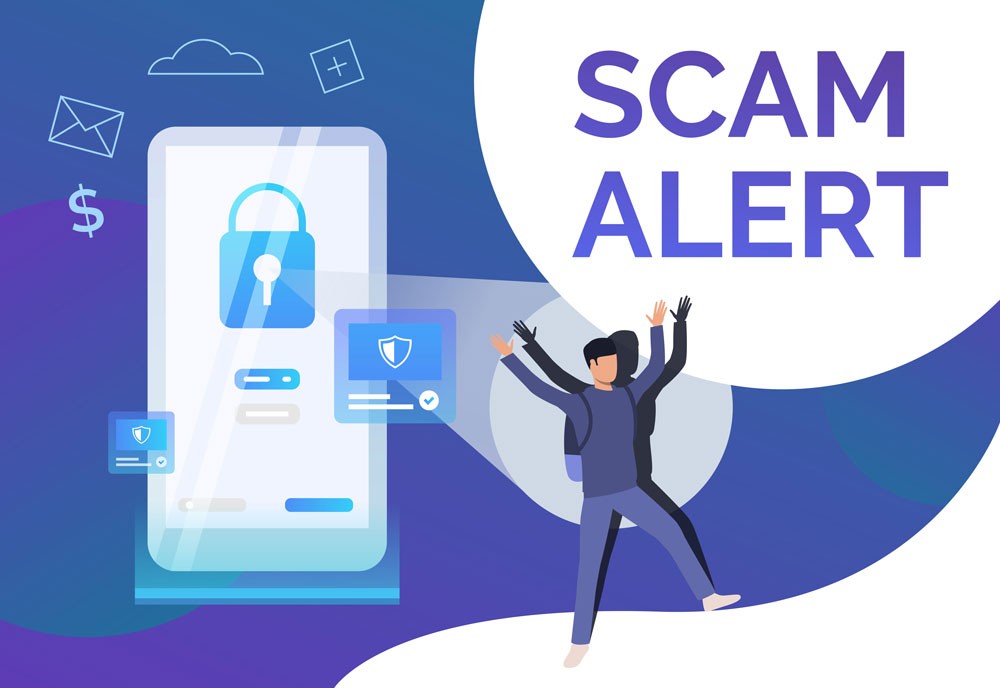The Covid-19 pandemic has hit everyone hard. A lot of businesses have faced difficulties and some are even closed due to the pandemic. Lockdowns and business restrictions have caused some people to shut up shop, at least for the time being.
Coping with this, and dealing with the new processes, applications for support, and the ever-changing business landscape means that a lot of people are treading new ground trying to establish whether or not they are entitled to support from local government or other business schemes.
Sadly, there are always going to be unscrupulous people trying to scam others to make a quick buck. Some scammers see Covid as an opportunity to make more money rather than something that should bring us all together.
Top COVID-19 related scams targeting your business
What are the top scams to be on the lookout for? It is generally a good idea to watch out for anything suspicious and to check the credentials of everyone contacting you, even claiming to be from the government. The scams below are all common at the moment as people try to con small business owners.
ROBOCALL SCAMS
Robocall scams may not be particularly new, but they are still prevalent today as people try to pose as someone else to scam business owners.
Be warned that robocalls can target people with a number of different bogus help schemes such as phony test kits, business support, and even unemployment support. Any cold call you receive should be taken with extreme caution, and if you are interested, the due diligence you carry out to try and understand the credibility of the business in question needs to be thorough.
State and government help schemes for businesses are really very helpful, but they also allow scammers to seem like they have credibility when they absolutely do not.
BUSINESS EMAIL SCAMS
Most businesses receive dozens of emails every single day. In some industries, it can be hundreds or even thousands. Though some spam filters are impressive, it is still absolutely vital to do your own research and make sure you don’t fall for a scam.
Phishing is one form the scams can take. For example, someone might pretend to be offering a link to a coronavirus support package, but actually linking to a script that will install on your computer, causing a virus.
Identity fraud is also rife. A fraudulent email might promise support to your business, and appear legitimate. If you fill in the details requested, they might be stolen and sold on the black market or used for identity fraud such as taking out lending. Using search tools to find email addresses will help you to establish whether a business is legitimate. By running the search tool you can see whether the business email address is from a trusted domain or whether it has been used in relation to scams before.
DATA SCAMS
Data scamming comes in all sorts of different methods, from fake questionnaires in emails to people going through old, discarded hard drives trying to recover information.
A data scam can take the form of an email scam or a phone scam and can even target individuals who are now working from home. Companies have lost a little control over their data, and a stolen employee laptop could have grave consequences.
PUBLIC HEALTH SCAMS
Did you know that the WHO have had to publish their own guidelines for people who might get scammed by fake emails and fraudsters posing as WHO representatives?
Cyber security comes in many forms, but the scams that people often fall for are those that look legitimate. Often, emails with false information, asking you for details about your personal details, will look like they come from an official body such as WHO, but if you look closely, they are actually sent from fake email accounts and bogus domains like “who-safety.org”.
WHO warn people to be on the lookout for emails with attachments, promising miracle cures or vaccines, offering funding or grants, or requesting personal details or passwords. This is good advice across the board.
Conclusion
In times of desperation, as many businesses and individuals find themselves in as the pandemic spreads, it can be easier to let your guard down. People can feel relieved if they receive a call or email promising help, and might forget about doing the necessary checks and due diligence.
Our guide to some of the common scams out there can help you to be wary. If an offer sounds too good to be true, don’t just blindly go along with it. You can use search engines and email search tools to find out if the support you are being offered or the other Covid-19 “information” landing in your email inbox or voicemail is legitimate, or whether you should ignore, or even report it to the authorities.




